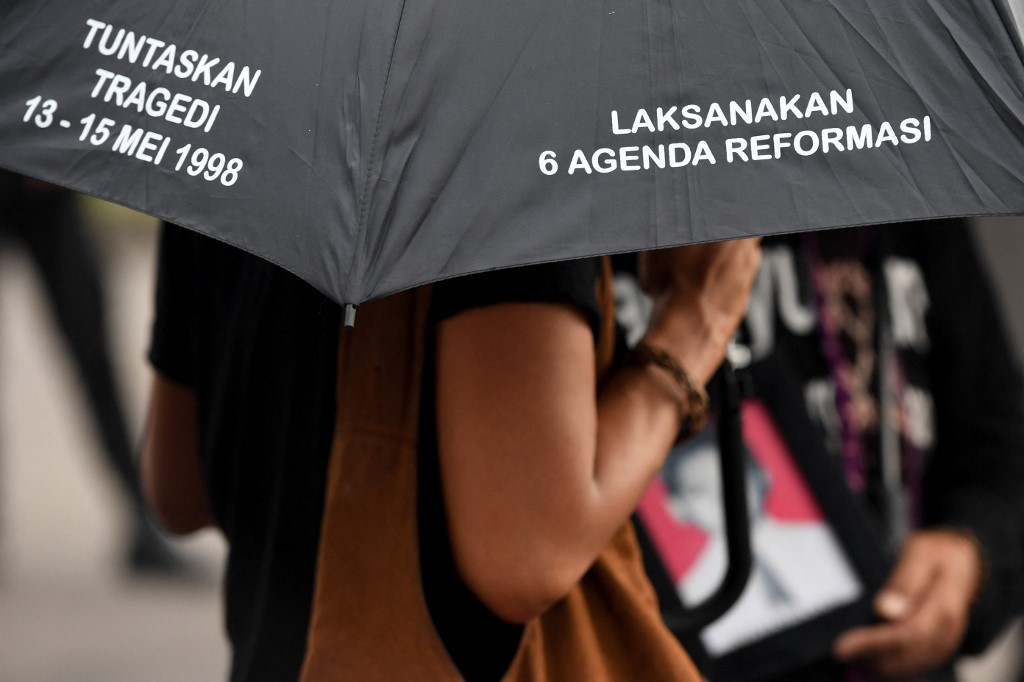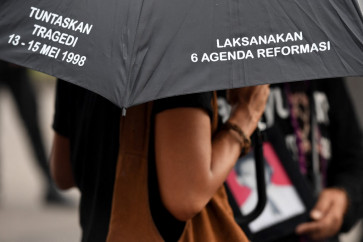Popular Reads
Top Results
Can't find what you're looking for?
View all search resultsPopular Reads
Top Results
Can't find what you're looking for?
View all search resultsA critical inquiry into the denial of May 1998 mass rapes
Formal recognition, both domestically and internationally, has been vital in combating denial, validating survivors and contributing to the historical record.
Change text size
Gift Premium Articles
to Anyone
A
s a social researcher, I found the recent statement by Culture Minister Fadli Zon regarding the mass rapes during the May 1998 humanitarian tragedy deeply unsettling.
In a grave misstep, the minister opened Pandora's Box. His assertion that this dark historical episode was merely a "rumor", despite being a documented tragedy, sparked widespread anger, sorrow and vexation. Civil society, particularly women's solidarity movements, immediately demanded his resignation. This isn't an abstract debate; it strikes at the core of truth, justice and the very possibility of healing for a nation grappling with its painful past.
Denying mass sexual violence in conflict is a distressingly familiar pattern. Scholars, including Catherine MacKinnon in Towards a Feminist Theory of the State (1989), have long argued that rape during war or civil unrest isn't an incidental act. Instead, it's a systematic tool of subjugation; a weapon of war used to terrorize, humiliate and dismantle communities.
In May 1998, the targeted nature of violence against women, especially those of Chinese descent, clearly revealed its intent: To control, instill fear and reinforce existing power hierarchies. Women's bodies became battlegrounds where ethnic and political anxieties were brutally played out.
The term “mass rape" denotes a widespread, systematic pattern of sexual violence. When a high-ranking official dismisses such an event as a "rumor", the consequences are far-reaching.
First, it invalidates survivors' lived experiences, forcing them to relive trauma while denying their reality. This revictimization is a cruel psychological violence, implying their pain is imaginary, memories unreliable and suffering insignificant. As Judith Herman explains in Trauma and Recovery: The Aftermath of Violence—From Domestic Abuse to Political Terror (1992), acknowledging trauma is fundamental to healing; denial obstructs this vital process, perpetuating silence and shame.
Second, the denial of historical facts, especially human rights atrocities, undermines justice and accountability. The Joint Fact-Finding Team (TGPF) formed by then-president B.J. Habibie, confirmed numerous cases of sexual violence, including gang rapes, during the May 1998 riots. The TGPF report, released on Oct. 23, 1998, stated that there were 52 victims of rape, 14 victims of rape with abuse, 10 victims of sexual assault/abuse and 9 victims of sexual harassment. The majority of victims, particularly rape survivors, were ethnic Chinese women.



















